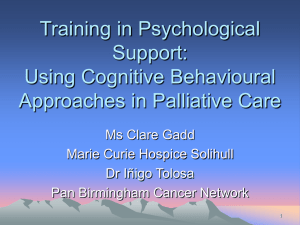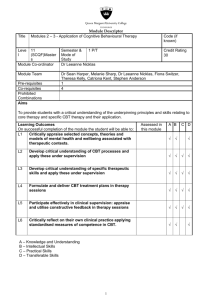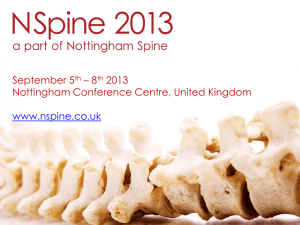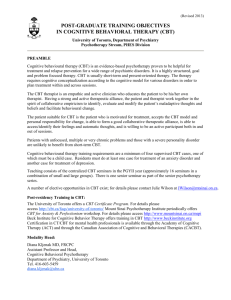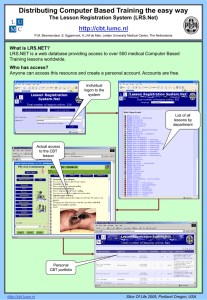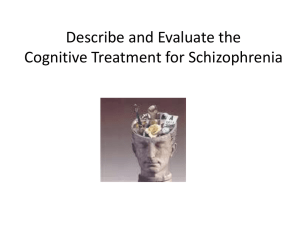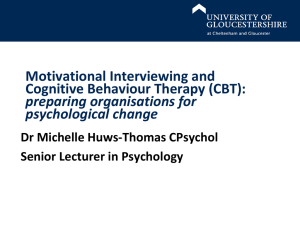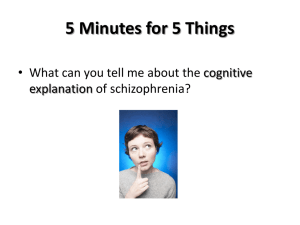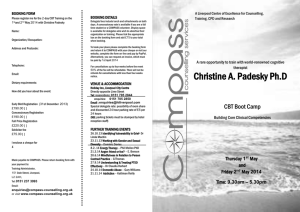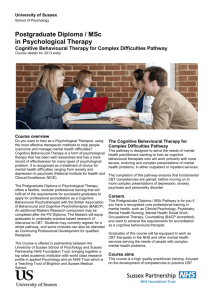SS703
advertisement
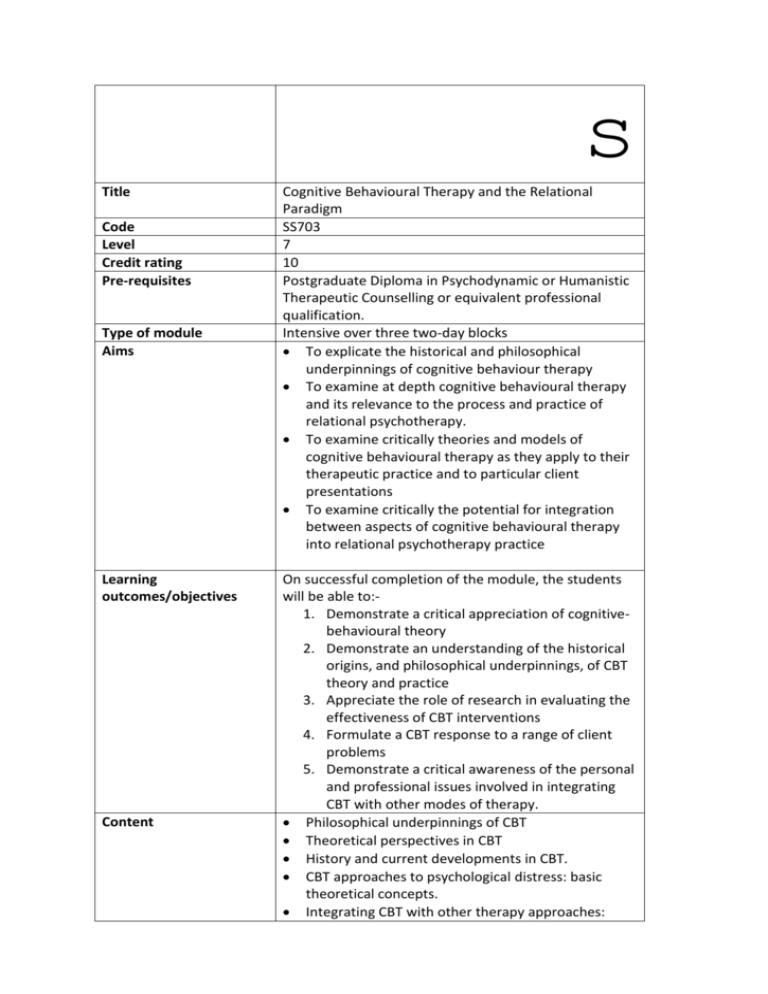
s Title Code Level Credit rating Pre-requisites Type of module Aims Learning outcomes/objectives Content Cognitive Behavioural Therapy and the Relational Paradigm SS703 7 10 Postgraduate Diploma in Psychodynamic or Humanistic Therapeutic Counselling or equivalent professional qualification. Intensive over three two-day blocks To explicate the historical and philosophical underpinnings of cognitive behaviour therapy To examine at depth cognitive behavioural therapy and its relevance to the process and practice of relational psychotherapy. To examine critically theories and models of cognitive behavioural therapy as they apply to their therapeutic practice and to particular client presentations To examine critically the potential for integration between aspects of cognitive behavioural therapy into relational psychotherapy practice On successful completion of the module, the students will be able to:1. Demonstrate a critical appreciation of cognitivebehavioural theory 2. Demonstrate an understanding of the historical origins, and philosophical underpinnings, of CBT theory and practice 3. Appreciate the role of research in evaluating the effectiveness of CBT interventions 4. Formulate a CBT response to a range of client problems 5. Demonstrate a critical awareness of the personal and professional issues involved in integrating CBT with other modes of therapy. Philosophical underpinnings of CBT Theoretical perspectives in CBT History and current developments in CBT. CBT approaches to psychological distress: basic theoretical concepts. Integrating CBT with other therapy approaches: Teaching and learning strategies Learning support issues, challenges and opportunities The role of research in effective use of CBT approaches. Core CBT skills: assessment, treatment planning and case formulation Implementing behavioural and cognitive change strategies Using homework assignments with clients, using self- help materials, monitoring client progress, relapse prevention strategies. Professional practice issues and supervision in CBT. The main theoretical content will be presented in the form of interactive lectures supported by small group discussions, and work in pairs. Students will be required to some read key papers in advance of the lectures. Three intensive block weekends will provide a series of structured exercises designed to help students develop a working model for understanding the potential for integrating CBT practice Tutorial support from module team Peer Learning Group Student support tutor Indicative Reading: Duncan-Grant, A. (2008) Assessment and case formulation in cognitive behavioural therapy London:Sage Duncan-Grant, A. (2010) Cognitive Behavioural Therapy in Mental Health Care London:Sage France, R. (1997) Cognitive behavioural therapy in primary care: A practical guide London: Jessica Kingsley Laidlaw, K. (2003) Cognitive behaviour therapy with older people Chichester:Wiley Salkovskis, P. (1996) Trends in Cognitive and Behavioural Therapies Chichester Wiley Sheldon, B. (1995) Cognitive-behavioural therapy: research, practice and philosophy London:Routledge Westbrook, D. (2007) An introduction to cognitive behaviour therapy: skills and applications Sage: London Whitfield, G. (2007) Cognitive behavioural therapy explained Oxford: Radcliff Wills, F. (2008) Skills in cognitive behaviour counselling and psychotherapy Sage: London Assessment tasks Students will be expected to deliver a 20 minute 1 Brief description of module content and/or aims (maximum 80 words) Area examination board to which module relates Module team/authors/ Coordinator Semester offered, where appropriate Site where delivered Date of first approval Date of last revision Date of approval of this version Version number Replacement for previous module Course(s) for which module is acceptable and status in that course School home External examiner presentation to the course tutors and their peers articulating their personal synthesis of the potential for the integration of CBT into their core modality (L.O 1 5). The aim of this module is to examine critically the principles and the practice of cognitive behavioural therapy . Through this examination, students will be equipped to develop a coherent, reflective and creative theoretical foundation and application to integrate into their psychotherapy practice. SASS Counselling & Psychotherapy Programmes AEB David Bott Pamela Howard Martin Jordan Sue Sully 1 Falmer 18th April 2012 1 n/a MSc Psychotherapy - Mandatory SASS Alex Coren (to 2015) and Ros Sewell (to 2015) 2
